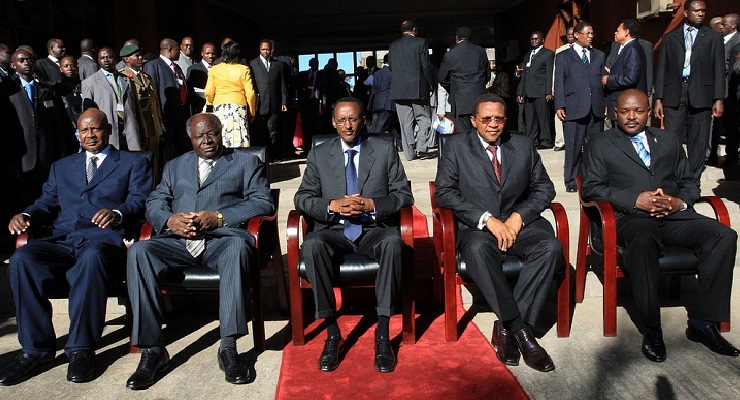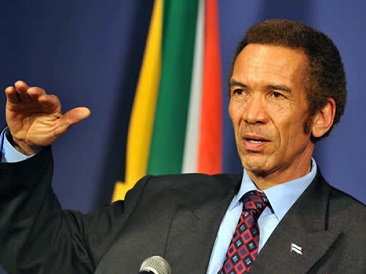
Democracy can be defined as the extent to which citizens enjoy broad political rights and civil liberties without repression from the Government or the ruling elite. We can measure it using Freedom House Aggregate for Political Rights and Civil Liberties, 2017. As far as leadership alternation is concerned, we borrow the definition by Hoff, Horowitz and Milanovic’s research paper from a 2005, “Political Alternation as a Restraint on Investing in Influence: Evidence from the Post-Communist Transition“. These authors have stated that “leadership alternation means a personnel change in the control of the executive, whether or not the leader is from the same party as his predecessor.” So it can be measured by total number of Presidents a country has had in a given period of time. We wish to explore how leadership alternation might have impacted democracy in Africa.

Our methodology involves a simple comparative study in which we look at the level of democracy in four countries where the present incumbent has been in power for more than 15 years and four other countries where two or more Presidents succeeded in office in the last 15 years. 15 years is the time for two or three mandates as Presidential mandates are usually four, five or seven years in Africa.
Equatorial Guinea, Angola, Zimbabwe and Cameroun
Teodoro Obiang Nguema Mbasogo of Equatorial Guinea has been in power since 03 August 1979, that is, 38 years in power. José Eduardo dos Santos took office as the second President of Angola at the death of Agostinho Neto on 21 September 1979, also 38 years in power.
Robert Gabriel Mugabe of Zimbabwe became prime minister of the new Republic of Zimbabwe in 1980 and was elected President in 1987. At age 93 Mugabe Mugabe is not only the third longest serving President in Africa, ruling uninterrupted since Zimbabwe’s independence, but is also the oldest Head of State in the world.
Born Paul Barthélemy Biya’a bi Mvondo on 13 February 1933, President Paul Biya of Cameroun, aged 84, is Africa’s fourth longest serving President with a total of 34 years in power. He took office on 06 November 1982 two days after the resignation of Ahmadou Ahidjo.
On an aggregate scale, Freedom House (2017) in its Freedom in the World Index places Equatorial Guinea in the list of its 11 worst countries in terms of political rights and civil liberties. Economist Intelligence Unit’s Democracy Index 2016 has shown a steady decline in Equatorial Guinea’s democracy since 2006, giving the country a score of 1.76 in 2016 which suggests that Equatorial Guinea is a totally authoritarian regime, not to say a totalitarian regime.
For Freedom House, Angola is not an electoral democracy and in terms of political rights and civil liberties, Freedom House (2017) aggregate qualifies Angola as one of the least free countries. For Economist Intelligence Unit’s Democracy Index 2016, Angola has not escaped the “colours” of an authoritarian regime despite constitutional reforms to accommodate political contest.
In Zimbabwe, the democratic landscape is also not the best. With a score of 32 on an aggregate score on political rights and civil liberties, Zimbabwe is classified as only partly free by Freedom House. After 37 years in power, Mugabe has scored as an authoritarian ruler since 2006 on The Economist Intelligence Unit’s Democracy Index.
The Republic of Cameroun’s (ROC’s) political rights and civil liberties indices at Freedom House are on the downside. With an aggregate score of 24, Freedom House qualifies ROC as not free. The Economist Intelligence Unit’s Democracy Index 2016 has shown ROC’s regime to be authoritarian and the ROC is on the alert marks on Fragile State Index 2017.
Senegal, Ghana, Botswana and South Africa
On the other side, four other countries seem to be doing very well in democratic terms.
South Africa seems to be no news in this regard ever since the collapse of the apartheid system in 1991. The Economist Intelligence Unit’s Democracy Index 2016 scored South Africa 7.41, placing it within the flawed democracy range but close enough to a full democracy. At the same time, with an aggregate score of 78/100 for political rights and civil liberties, South Africa is considered a free country by Freedom House (2017).

Botswana also scored 72/100 in the Freedom in the world 2017 aggregate score for political rights and civil liberties, making her a free country. Equally free are Senegal, 78/100 and Ghana with probably the highest score in Africa, 83/100 for political rights and civil liberties (Freedom House, 2017). Also, Ghana, Botswana and Senegal are very close to full democracies according to the Economist Intelligence Unit’s Democracy Index 2016.
The commonality between these four countries is that they all have had sustained leadership alternation since the landmark periods of the independence of African countries in the 1960s and of the (re)adoption of democracy in Africa in 1990s after three decades of One-Party rule. All four have had more than two rulers succeeding office in the last two decades.
Senegal has had four Presidents since 1960 with the last three transitions occurring relatively smoothly. While Ghana has had a tormented past, she has had up to 13 persons ranking as Head of State since her independence in 1957. The last two decades have seen peaceful transitions between four Presidents in Ghana.
In South Africa the end of the apartheid regime saw the victory of Nelson Mandela of the African National Congress (ANC) in the elections of 1994. Since then South Africa has had two other Presidents.
On its part, Botswana is considered the “miracle of Africa” as it has never experienced a military coup d’Etat and was not seized by the madness of One-Party rule in Africa. Since independence on 30 September 1966 Botswana has had three Presidents and one acting President.
Conclusion
It appears that in countries like Senegal, Botswana, South Africa and Ghana that have experienced leadership alternation, democracy tends to do better than in countries like Equatorial Guinea, Angola, Zimbabwe and Cameroun where the same person has governed for a relatively long period of time. While this observation relies on a small data set, it is important to pursue research on this question of leadership alternation and democracy.
This is a burning issue in several milieus. There are those who seem to have embarked on demonstrating that democracy includes the “freedom to choose the same leader indefinitely”. Are monarchs going for elections now? This philosophy is somewhat problematic as it would seem that as an individual tends to stay in power for too long, democracy, which is vital for socio-economic development, instead tends to deteriorate.
David Anderson says
Good roundup, and excellent bringing Equatorial Guinea into it – a poster child of horrible dictatorship.
David
Ngah Gabriel says
Thanks David. I am glad you found my analysis pertinent. Its important to address these issues, Africa is in dire need of scientific analyses that disprove some of the faulty political philosophies expounded by some of these Heads of State. This was my humble attempt at it. I thank DC for publishing me.